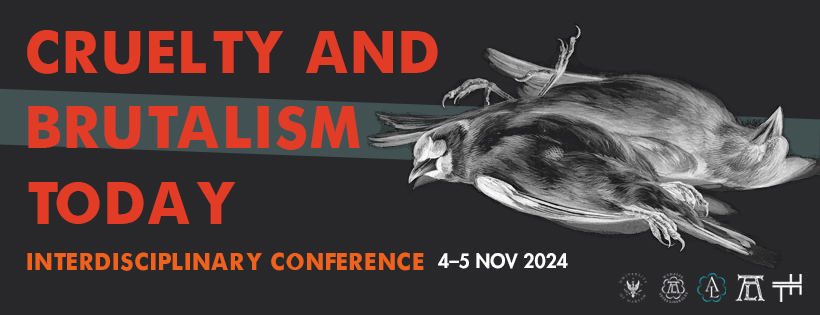Szymon Wróbel
(University of Warsaw, Polish Academy of Sciences)
Abstract:
Werner Herzog’s films are marked by the intriguing perspective of a documentarian, who, while observing the disintegration of selected fragments of reality, also observes various incarnations of cruelty. From his early films, Signs of Life (1968), in which a traumatized German paratrooper, enjoying Chopin’s “erratic” music, terrorizes a Greek town by threatening to blow up an ammunition dump; Aguirre, the Wrath of God (1972), in which an impulsive schemer repudiates the king’s service in an attempt to establish his own kingdom on the El Dorado River, in a world where “God never finished his work”; through The Enigma of Kaspar Hauser (1974), the story of an “orphan of Europe” who has no idea what violence is, even though he himself is killed in an incomprehensible act of insidious violence; Woyzeck (1979), the story of a simple soldier who, like a Gnostic, prophesizes that “everything earthly is evil” and “even money is subject to decay”; to Fitzcarraldo (1982), in which Klaus Kinski plays the role of a dreamer trying to build an opera in the middle of the jungle, and finally Cobra Verde (1987), where an adventurer, a bandit and a loner, a slave trader, once again played by Klaus Kinski, himself becomes a hostage to violence, and an irreversible violence at that. The documentary sense grows in Herzog’s work, and it seems that the observation of acts of destruction, apocalypse, and possible reactions to it is gaining in scope and intensity. Already in the 1977 film La Soufrière – Warten auf eine unausweichliche Katastrophe, Herozg looks at the fate of an island that is part of Guadeloupe, doomed to an “inevitable catastrophe”, which, by the way, does not happen. In the film Bells from the Deep: Faith and Superstition in Russia (1993), the director tells the story of the city of Kitezh, which was submerged in a lake, and the superstitions that arose from this event. In Encounters at the End of the World (2007), Herzog observes an Arctic laboratory that seems to be a bridgehead and a seed of “humanity” preparing to leave the planet Earth after its destruction. Finally, in Lessons of Darkness (1992), Herzog observes from a bird’s eye view the devastated oil fields of Kuwait after the Gulf War. In this film, we hear the question of life without fire – has life without fire become unbearable for us? We also hear the story of a mother of a child trampled during the war who loses his speech and, in his last sentence, complains mutely: “Mommy, I never want to learn to speak again.” During my presentation, I would like to reflect on these various documents of cruelty recorded by Herzog and ask what conclusions should be drawn from them. How can we go beyond a catalogue, an archive of cruelty, beyond simple documentation, and beyond a registration that would be something more than an act of awareness?
Bio:
Szymon Wróbel is a full professor of philosophy at the Faculty of Artes Liberales at the University of Warsaw and the Institute of Philosophy and Sociology of the Polish Academy of Sciences. He is the author of numerous books and articles scattered in various scientific journals. His books in English include: Deferring the Self and Grammar and Glamor of Cooperation, published in 2013 and 2015. In Polish: Ćwiczenia z przyjaźni (Exercises in Friendship), Lektury retroaktywne (Retroactive Readings) and Polska pozycja depresyjna (Polish Depressive Position) published by Kraków Publishing House Universitas. In 2016, IFiS PAN published his book, Filozof i terytorium (Philosopher and Territory) on the Warsaw School of Historians of Ideas. Together with Krzysztof Skonieczny, he is co-editor of three books – Atheism Revisited. Rethinking Modernity and Inventing New Modes of Life (Palgrave Macmillan 2020) and Living and Thinking in the Post-Digital World (Universitas 2021), Regimes of Capital in the Postdigital Age (Routledge, 2023). Currently, he is the head of the experimental Laboratory of Techno-Humanities at the Faculty of Artes Liberales where for several years he realizes the “Technology and Socialization” project.
